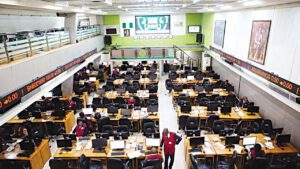Naira losses 23% value in the third quarter of 2023
The Nigerian currency, the naira, has suffered a significant depreciation in the third quarter of 2023, according to official and unofficial data.
The third quarter of 2023 has closed with startling figures for the Nigerian economy as the Naira faced a significant depreciation in value.
According to data gathered by newsmen, the official exchange rate at the end of Q3 was N755.27/$1, a noticeable drop from N769.25/$1 at the end of Q2.
However, it’s the parallel or “black” market that paints a more distressing picture, with the rate plummeting from N770/$1 to N1000/$1 over the same period—a staggering 23 percent loss.
Simultaneously, the external reserves have slipped from $34.1 billion at the end of Q2 to $33.2 billion, raising further questions about Nigeria’s economic stability.
The widening gap between the official and unofficial rates reflects the persistent scarcity of foreign exchange in the country, as well as the divergent policies of the CBN and the market forces. The central bank has blamed the forex backlog estimated at between $6 billion to $10 billion as the major reason for the currency depreciation.
At the recent Senate confirmation of the central bank governor, Yemi Cardoso stated that he intends to establish the exact unsettled obligations and find ways to “take care of it” confirming that progress will not be made without clearing the backlog.
“It is that of which I’ll term an operational issue. Right now, we have a situation where we are aware there are unsettled obligations of the central bank whether it is $4bn, $5bn, $7bn, I don’t know.
“But definitely, the immediate priority will be to verify the authenticity and extent of the unsettled obligation and once we do that, we need to look for a way to take care of it.
“It would be naive for us to think we will be able to make progress if we don’t handle that side of the foreign exchange,” he said.
The naira’s weakness has had negative impacts on the Nigerian economy, as it has increased the cost of imports, fuelled inflation, eroding purchasing power, and discouraged investment.
The inflation rate rose to 25.8% in September, according to the National Bureau of Statistics (NBS).
The outlook for the naira remains bleak, as analysts expect further pressure on the currency in the fourth quarter of 2023. The exchange rate experienced a sharp depreciation in November 2022 after the apex bank announced its currency redesign policy.
The CBN may have to devalue the official rate again to align it with the market reality and conserve its dwindling external reserves, which fell from $34.1 billion at the end of June to $33.2 billion at the end of September.
Analysts however suggest a further devaluation might be avoided if the apex bank is able to meet its obligations to clear forex backlogs. However, achieving this might require the government tap new loans from friendly countries.




